EHRCON25: the rebels of digital health
While last year our enthusiasm for the openEHR standard took us to Reading (United Kingdom), this year we ended up in sunny Barcelona – city of iconic Gaudí buildings, the Ramblas and, apparently, the largest international openEHR conference to date! Six of our colleagues were there and we are happy to share our experiences with you.
An international affair
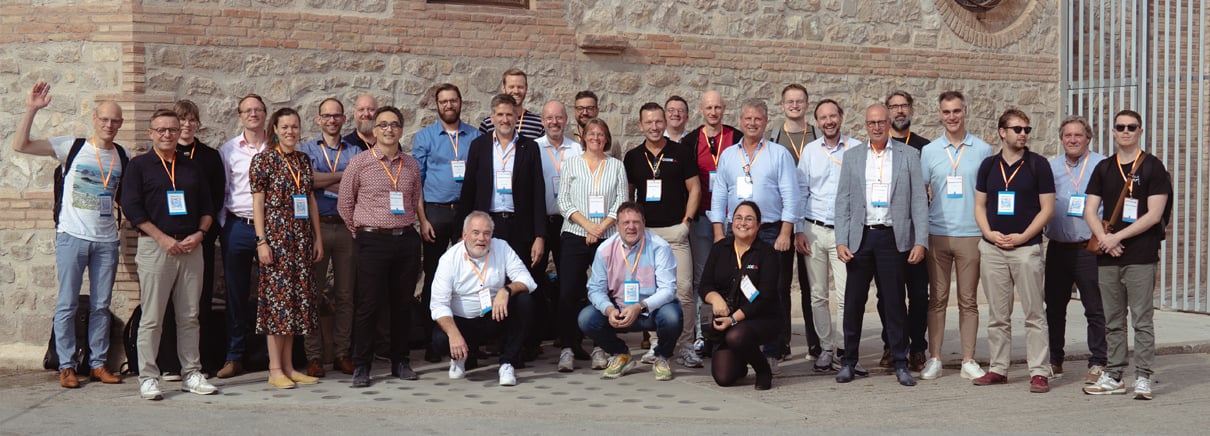
The Dutch delegation took a group photo together on day 1.
Positive Energy
It is clear that openEHR is alive and well, both in the Netherlands and worldwide. This was also evident from the opening remarks by Rachel Dumscombe, CEO of openEHR International, and Tomaž Gornik, Co-Chair of openEHR. They spoke about how openEHR is truly becoming the data fabric of healthcare – now it is time to scale up, with a focus on collaboration, quality, governance and trust.
The many real-life use cases also generated positive energy. From the use of openEHR in Catalonia itself and at OneLondon to more specifically focused use cases involving the use of openEHR for radiotherapy, pandemic preparedness or vaccinations, for example. Together with Bouwe Koopal from Maarsingh & van Steijn, our very own Martin van der Meer gave a presentation on how the combination of openEHR and low-code has facilitated the formation of the SICHT DATA EHR, which is now being used in practice.
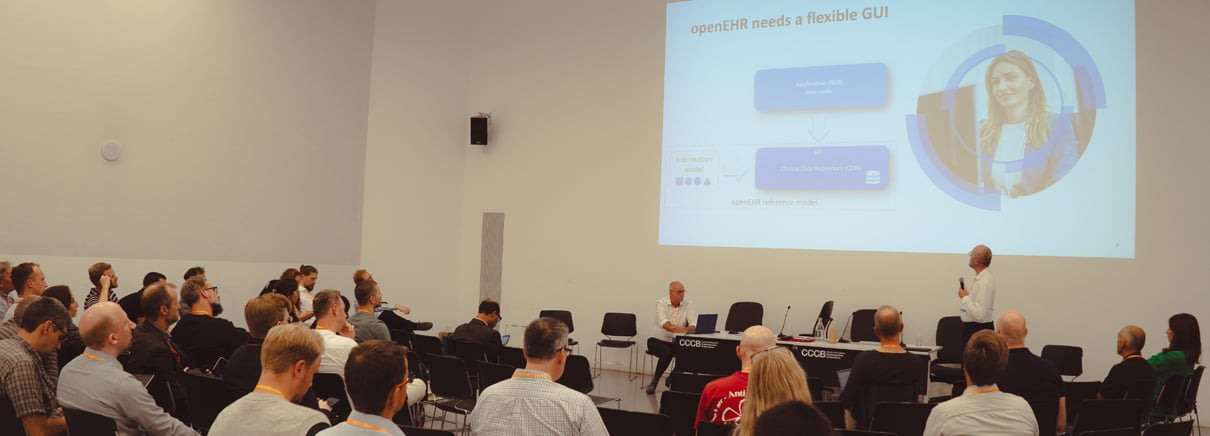
A lighter note came from ePatient Dave deBronkart, who was unable to attend in person this year, but more than made up for it with a rousing video message - in Star Wars style. Dave sees the openEHR community as "the real front-line rebels of digital health", who are fighting the Death Star of locked-in systems – for both healthcare providers and patients. But ultimately, this playful message also has a serious undertone: "We all know what happens when data does not flow to the point of need." And that's what it's all about.
A central role for AI
A report on EHRCON25 would not be complete without mentioning AI – it was a recurring theme throughout the event. After all, without structured, high-quality data, AI is useless in healthcare settings - and that is where openEHR and AI come together.
Grahame Grieve, founder of the FHIR standard, emphasised during his presentation how we cannot ignore AI. We must get as much out of it as we can to support healthcare. However, this means that developers of open standards must roll up their sleeves – while AI makes us more productive, it also puts extra pressure on the process of developing standards. Grahame shared his call to action: "Build a civil infrastructure, contribute to digital public goods." It's worth it.
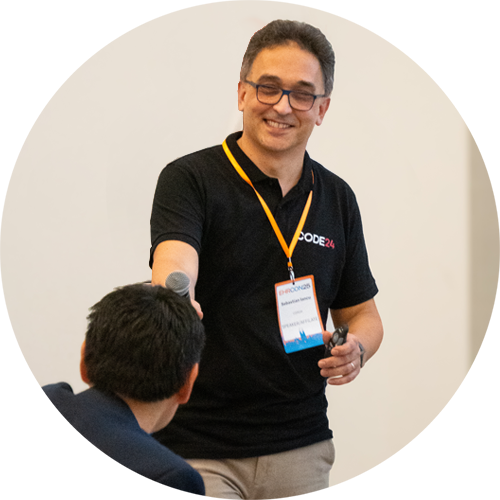
"What impressed me most at EHRCON25 was seeing so many new faces joining the openEHR community, and the wave of fresh initiatives, including in AI. It’s clear that we’re not just evolving; we’re preparing for the future that’s already taking shape."
Sebastian Iancu, Architect and Co-Founder CODE24
The keynote speech by Bart de Witte of Isaree / HIPPO AI took us through the practical application of agentic AI for the healthcare process. Bart's credo here is: ‘Less is more’. He discussed the possibilities of Sparse Language Models (as opposed to the well-known Large Language Models) and envisions a future in which openEHR has the potential to become the long-term memory in the agentic workflow.
Sharing knowledge
The open sharing of knowledge is truly part and parcel of the openEHR community. Whether it concerns clinical modelling, mapping different standards, data sovereignty, app portability or the practical creation and deployment of open healthcare data platforms, all attendees are working to improve healthcare within their own disciplines. They actively learn from each other and look for opportunities for collaboration. At CODE24, we agree on the importance of this – when we give back to the community, it only becomes stronger, and ultimately we all reap the benefits.
With this in mind, we presented three sessions at EHRCON25: the aforementioned session on low-code, a session with Sidharth Ramesh from Medblocks on SMART on openEHR, and a session on how we at CODE24 use the Demographics Specifications of openEHR. It was great to see how these presentations led to valuable input and questions from the audience and to good discussions afterwards!
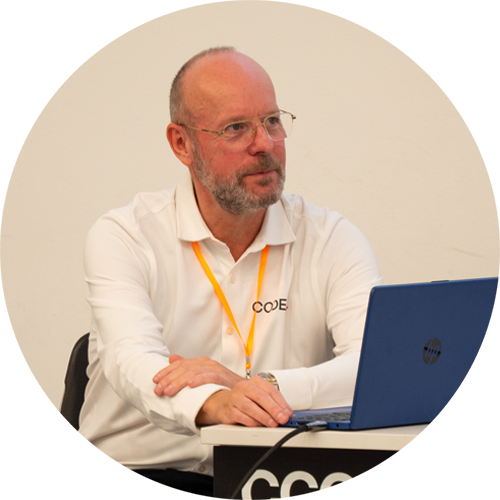
"It was a real pleasure presenting alongside Bouwe Koopal, showcasing the synergy of openEHR and WEM for SICHT DATA! EHRCON25 was a good event, filled with insightful discussions with healthcare professionals who recognise the transformative potential of openEHR and its integrated systems. We will continue our collaboration and are also looking forward to others joining us! "
Martin van der Meer, Manager Business Development and Co-Founder CODE24
A team sport
While, on the surface, openEHR may appear to be primarily a technical matter, EHRCON has now demonstrated for the second year in a row that people are at the heart of this community. This includes, of course, the healthcare providers and patients for whom we do all of this, but also the community as a whole. As Kate Ebrill of CSIRO said: "Standards - it's a team sport". The openEHR community celebrates each other's successes, everyone is accessible, and well-deserved individuals were praised for their efforts. For example, healthcare informatician and registered nurse Silje Ljosland Bakke received this year's David Ingram Award for Outstanding Contribution to openEHR, and Sam Heard, co-founder of openEHR, shared how his own father has meant a great deal to the formation of openEHR in the early days.
Everything starts with an idea - then you bring the right people together to make it a success. With this kind of positive energy, we are already looking forward to what EHRCON26 will bring! More penguins? :)
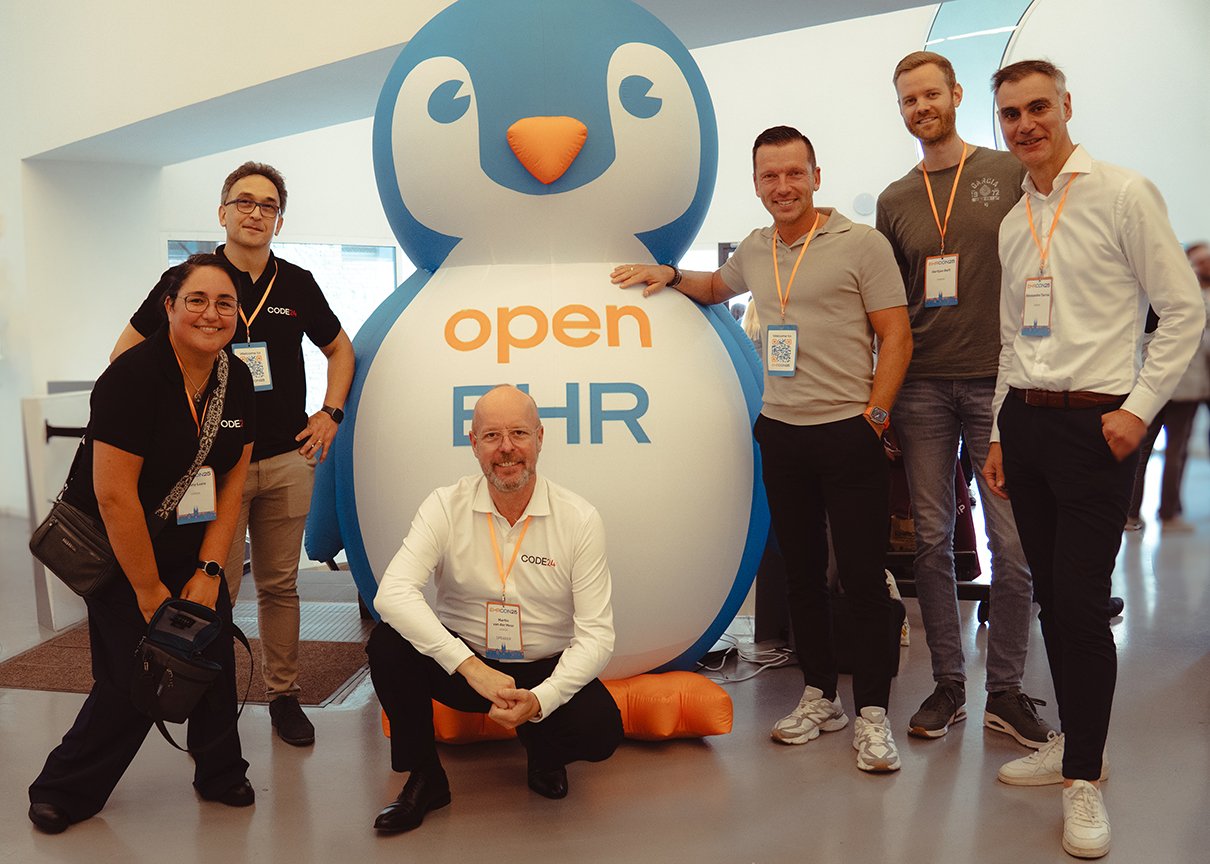
Jenny Luco, Sebastian Iancu, Martin van der Meer, Niels Greidanus, Gertjan Bult and Alessandro Torrisi with oPenguin.